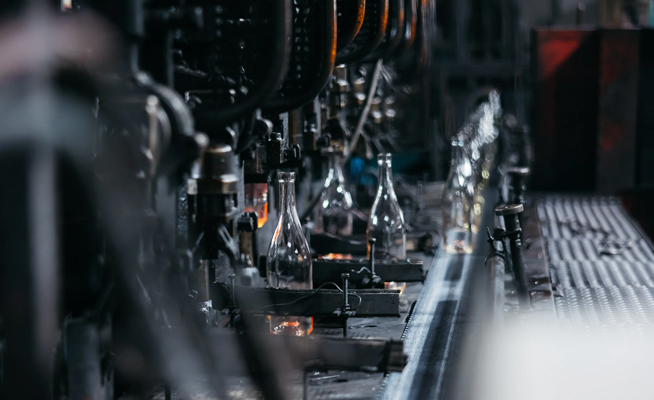Hrastnik1860, a member of Vaider Group, introduced one of its most important sustainability projects: a hybrid end-fired regenerative furnace (BEAR) project, which sets new standards in the field of industrial decarbonisation. The hybrid furnace, which will utilize up to 40 percent of electricity for its heat supply, will help to drastically reduce the carbon footprint while maintaining the highest standards of glass quality. The new technology reduces natural gas consumption by up to 50 percent for melting process compared to Best Available Technologies and represents an important step in the decarbonisation of the European glass and energy intensive industry.
This hybrid furnace will use a higher proportion of electricity for operation (up to 40 percent), which is a remarkable leap from the current industry norm of only 5 to 10 percent. As a result, natural gas consumption will be decreased which will also reduce the environmental impact associated with fossil fuels. Over the next decade, the furnace will prevent more than 100,000 tonnes of CO2 equivalent emissions, enough to offset the total yearly greenhouse gas emissions of 20,000 households in the Zasavje region, Slovenia.
The hybrid furnace, designed as part of the BEAR project, the first and only project in Slovenia co-funded by the EU Innovation Fund, is designed to align production with the availability of renewable energy sources, making it adaptable to the demands of a sustainable energy future.
The BEAR project has an investment value of EUR 3,730,000, 60 percent of which is financed by the EU Innovation Fund. The hybrid furnace will be integrated into a so-called hybrid energy storage system, coupling it with a locally available photovoltaic power plants. This collaboration, a part of the Horizon Europe i-STENTORE project, will enable renewable energy sources and glass production to further contribute to achieving the goals of the green transition.
In the last three years, Hrastnik1860 has expanded its own photovoltaic capacity by 1.3 MWp and transitioned to 100 percent clean electricity sourcing, significantly reducing emissions. In the future, they are committed to sourcing even more renewable energy locally and encourage building energy communities that promote energy independence and resilience. Clean glass melting is also an important pillar of their commitment to sustainability.






